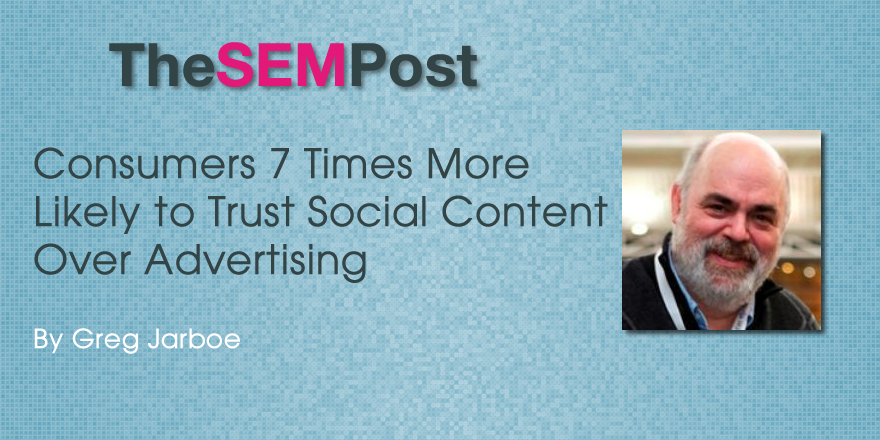 Olapic, a leading earned content platform, released the results of a global study this week exploring the impact of user-generated photos on consumer trust and brand engagement. Results show that of those surveyed worldwide, consumers are seven times more likely to trust social media photos featuring “real people” than traditional advertising, findings that may have critical implications for brands looking to heighten trust and overall engagement among consumers.
Olapic, a leading earned content platform, released the results of a global study this week exploring the impact of user-generated photos on consumer trust and brand engagement. Results show that of those surveyed worldwide, consumers are seven times more likely to trust social media photos featuring “real people” than traditional advertising, findings that may have critical implications for brands looking to heighten trust and overall engagement among consumers.
The report, “Consumer Trust: Keeping It Real”, which details the results of the survey of more than 4,500 active social media users between ages 16 and 49 in the US and Europe (the UK, France, Germany, Spain and Sweden), indicates that trust has a tremendous impact on click-through rates and sales. In fact, more than half (56 percent) of respondents say they would be more likely to click on an ad with a consumer-generated image than a stock photo — and the same percentage said they’re more inclined to buy the product. Meanwhile, almost 80 percent of mobile users admitted they’re likely to block ads they find irrelevant or irritating.
“Our Global Report reveals low levels of consumer trust for branded advertising across all countries,” said Pau Sabria, co-founder of Olapic. “These findings send a strong message to brands about how they should engage with consumers, and US retailers in particular should take note. As we tread deeper into the social age, we’re seeing the power of consumer-generated content firsthand, transforming how shoppers regard products and interact with brands. Widespread distrust in traditional advertising suggests consumers are seeking a more honest dialogue with brands and in order to increase sales, brands will need to adapt to this changing landscape.”
The report’s findings also show that in the US in particular, user-generated photos play an instrumental role across the customer journey. Sixty-five percent of surveyed Americans are interested in looking at social media photos while ‘pre-shopping’—when consumers begin browsing products—and another 70 percent of Americans express they’re more inclined to make a purchase after seeing a relatable consumer post online. Another 27 percent of US respondents confirmed they seek inspiration from user-generated content (UGC) online prior to making a purchase. US respondents also showed a particular fondness for brand engagement on social media as 54 percent admit they’ve posted content using a brand’s hashtag to share news of their latest purchase with friends.
The consumer appetite for authenticity has an important impact on everyday interaction with brands, with 45 percent of respondents seeking inspiration from UGC once a day or more, and 71 percent at least 2-3 times a week. Overall, 49 percent of respondents are more likely to buy a product across verticals when endorsed by a real person, and nearly a quarter say they have bought a product after seeing it featured in UGC.
About the research
The research was carried out by market research specialists Censuswide across the UK, US, France, Spain, Germany and Sweden. An online survey of 15 questions was completed by a total of 4,578 active social media users (individuals who use social media at least once a week) between the ages of 16 and 49. The report explores how the use of social media and the consumption of consumer-generated images impact consumers’ trust in brands. You can download and read Olapic’s full report, “Consumer Trust: Keeping It Real”, here.